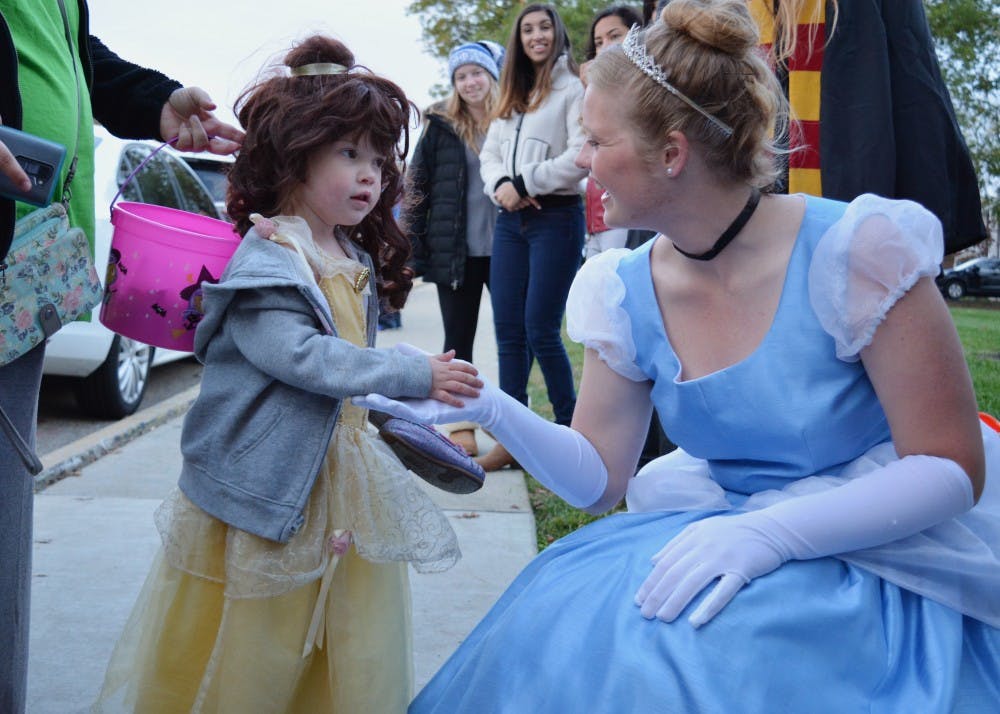Actress and overall badass Keira Knightley made headlines this past weekend when she told reporters her daughter is banned from watching Disney movies, including “Cinderella” and “the Little Mermaid,” that she deems anti-feminist.
Knightley told Ellen DeGeneres that Cinderella “waits around for a rich guy to rescue her,” and Ariel gives her “voice up for a man.”
For many of us, the movies we grew up with don't reflect modern feminism. Ariel gives up her voice — and therefore the ability to speak for herself — for a man she barely knows. Cinderella is whisked out of isolation and servitude by a rich, powerful man. These movies no longer have a place in our culture. Or do they?
What our children can gain from these Disney classics depends on how we frame the fairy tales to them.
And before you use this argument to back up my point, these films aren’t just silly animated movies. For a child, Disney movies are an early look into how society works and how men and women behave. They seep into how children view the world. So it’s up to us to guide their interpretations.
Ariel may have swapped her voice for legs, but she’s also curious to a fault, dreams of exploring and works to subvert the status quo set by her father. Never limiting herself to life sequestered in a castle, she ventures into a foreign place while learning about the world around her, fighting evil and saving her family.
Cinderella has the courage to defy authority and step out of her comfort zone. And despite her struggles, she never loses sight of kindness and humanity — something that requires so much strength. Sure, she gets a little help from a fairy godmother and some animals — even a prince — but there’s nothing wrong with getting help, even from male allies.
Both films offer a chance to talk about female relationships — the love between Ariel and her sisters, a fairy godmother supporting a desperate woman in a time of need. On the other hand, negative female relationships — Ursula’s jealousy toward Ariel, Cinderella’s conniving sisters — don’t fare well for the “mean girls.” But girls who treat other women with respect get what they deserve. Girls can learn a lot about supporting other girls from Disney movies.
Look, I’m no parent, and I’m not telling parents like Knightley how to raise their children. She seems like a great mom who doesn’t need the help of a college student. But I’ve seen these Disney movies more than any functioning human in society should, and since I was a kid, I saw something different in these princesses. I saw their strength, curiosity and kindness — something children won’t see if we boycott all Disney movies or watch them without opening a dialogue with children.
Kristen Bell once told Parenting Magazine that Snow White sends the wrong message about consent to her daughters, so every time they finish the movie, they stop to talk.
“I look at my girls and ask, ‘Don’t you think it’s weird that Snow White didn’t ask the old witch why she needed to eat the apple?’” Bell said. “‘Don’t you think that it’s weird that the prince kisses Snow White without her permission? Because you cannot kiss someone if they’re sleeping.’”
These are the conversations we should have with children.
Yes, Cinderella dresses up all pretty before the ball, possibly insinuating young women should strive to look good enough to attract men. So, tell your kids that’s dumb.
Yes, Ariel confuses infatuation with love. Use that opportunity to tell children what love really is beyond heteronormative, sexist views.
While we should also recognize the lack of representation for women of color or LGBT characters in Disney, we should use them as an opportunity to talk to kids about why this is important and, of course, supplement Disney with more inclusive works.
Children can learn so much not only from what these films do right but also from what they do wrong.
Talking about the feminist pitfalls of these movies not only shows children how to be strong women but also shows them the barriers women before them have overcome, empowering them to overcome continued barriers. It can teach them to be critical of the society handed to them and help them understand that they can and should make the world they inherited from their parents better than it is now.






